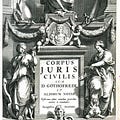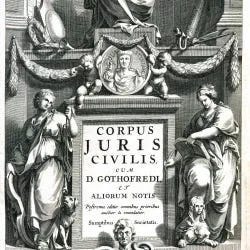This past week, the Supreme Court heard arguments in two cases, Loper Bright Enterprises v. Raimondo and Relentless Inc. v. Department of Commerce, in which the main question was whether to overrule Chevron USA Inc. v. NRDC, the 1984 decision in which the Court said (roughly) that if Congress has not spoken directly to the precise question at issue, courts should defer to reasonable interpretations of the relevant statute by administrative agencies.
I offer here just one brief conceptual and methodological point: both sides of the argument, for different reasons, fell into a misframing of the fundamental question about Chevron. At many points, the challengers’ lawyers, especially Paul Clement, claimed that the alternative to Chevron is that judges should determine “the best reading” of the statute. (Occasionally, this was put in terms of legal Latin, in which the supposed alternative to Chevron is the de novo reading of the statute). This framing was never squarely contested, at least in any clear and sustained way, by the Solicitor General or by the Justices who seemingly favor retaining Chevron. Justice Elena Kagan, for example, several times suggested that the fundamental argument for Chevron is that sometimes “the law runs out,” and when it does, courts have no alternative but to defer. As I will explain, this isn’t quite right, although to be fair it’s not wholly wrong either. And it exposed Justice Kagan to the repeated objection, both from the challengers’ lawyers and from colleagues, that in ordinary statutory interpretation cases where there is no agency in the picture, judges do not simply throw up their hands and declare that the law has exhausted itself. (To be clear, this objection too is misleading, as I will explain).
The reason that the Chevron debate cannot be conducted as though the alternative to Chevron is “the best reading” is that Chevron is entirely compatible with judicial authority and duty to determine what the “best reading” actually is. Henry Monaghan made this argument decades ago; it was brought to the Court’s attention in an amicus brief filed by the Constitutional Accountability Center for a number of administrative law scholars, which I signed; and I have recently written about it for a symposium devoted to the Loper Bright and Relentless cases. And indeed, in the context of debate over deference to agency interpretations of their own rules, Justice Kagan made essentially the same point in her plurality opinion in Kisor v. Wilkie, observing that when courts apply Section 706 of the Administrative Procedure Act, they might “decide the relevant question of law” precisely by “review[ing] the agency decision for reasonableness.”
The reason that Chevron is entirely compatible with a commitment to finding “the best reading” is that the best reading may itself just be that Congress has delegated to the agency the power to interpret the law when statutory terms are general, vague, open-ended, or ambiguous. The idea of “the best reading,” in other words, is an empty idea. It begs the question to oppose Chevron to the best reading or the de novo reading. What is really at issue is the default rule or legal presumption for deciding what, exactly, the “best reading” should be deemed to be. Putting aside constitutional questions about Congress’s ability to prescribe interpretive default rules for the courts (as all the Justices seemed inclined to do), if Congress enacted an express global interpretive default rule that statutes should be deemed to delegate law-interpreting power to agencies whenever statutory terms are general, vague, open-ended, or ambiguous, that would itself uncontroversially be the best reading. The hard question about Chevron is whether a similar default rule should, or should not, be deemed to obtain when Congress has not in fact spoken expressly to the allocation of law-interpreting authority between agencies and courts. But one makes precisely no progress on that question by intoning “let the best reading prevail.” The question, always, is whether or not such a legal presumption or default rule is itself the best reading, whether such a default rule is itself part of the law that courts are tasked with determining.
On this view, the problem with Justice Kagan’s formulation about “the law running out” is that “the law” can be ascertained at either of two levels. When Congress enacts a statute of the sort that vexes courts in Chevron cases, where the first-order statutory text is general, vague, open-ended or ambiguous, “the law” in a sense runs out, but in another sense it never does; the court just resolves the case by applying the legal presumption or default rule about how law-interpreting authority is allocated between agencies and courts in such cases. That resolution is itself the “best reading.” On this view, courts in Chevron-type cases do exactly what they do in non-agency cases, in which they resolve cases, ultimately, by applying some residual legal presumption or default rule in order to bring the decision to a close. There is no difference between agency cases and non-agency cases; in either context, courts have no choice but to identify “best readings” by falling back upon legal presumptions.
If the idea of “best readings” is not an alternative to Chevron, how do we know whether Chevron is the right approach, or not? By arguing in substantive terms about what the right background presumption of the law is, when Congress has not expressly delegated (or denied) law-interpreting authority to agencies. Justice Scalia’s famous 1989 defense of Chevron took exactly this tack, arguing that the best general default rule is that when Congress has not spoken expressly, it should be deemed to have conferred law-interpreting authority on agencies. In Scalia’s view, this default rule, rather than the opposite, best tracked Congress’ apparent general intentions in the complex administrative state that Congress itself has brought into being through decades or centuries of legislation. Scalia called the Chevron default rule “a fictional, presumed intent, [which] operates principally as a background rule of law against which Congress can legislate.” This was a vivid but perhaps unfortunate choice of words, one that subsequent critics (including the challenger’s lawyer in the two cases under consideration) have exploited to claim that Chevron’s foundations are “fictional” in a colloquial and pejorative sense. But that colloquial and pejorative sense is not, of course, what Scalia meant or what lawyers mean when they use the term. In the law, fictions — legal fictions — are a venerable and entirely legitimate type of doctrine; they merely attach legal consequences to certain state of affairs (such as, here, statutory generality, vagueness, open texture or ambiguity). In other words, they simply identify a legal presumption, as Justice Scalia made clear when he wrote that the Chevron default rule is a “fictional, presumed intent” and as Justice Kagan acutely observed at one point in the oral argument.
The underlying methodological issue here is one that classical lawyers have emphasized repeatedly: there is no such thing as interpretation without background presumptions. (For this argument, see, for example, Conor Casey here, and myself here and here). All legal interpretation occurs under the horizon of background presumptions, often so deeply embedded that we do not notice them — for example, the fundamental presumption that legislation advances public rather than private interests, as Justice Scalia once observed. Indeed, the Justices who criticize Chevron illustrate this in their own opinions. The tell or giveaway that the real issue is what substantive legal presumptions or default rules should be brought to bear is that the Justices who disfavor Chevron do not really defend the “best reading” approach, if by that is meant (the fantasy of) presumption-free interpretation. Instead they have developed, over a series of cases, an alternative presumption to Chevron: the so-called “major questions doctrine,” which says (roughly — the doctrine has not yet settled into any consistent formulation) that when questions of major economic and political significance are at issue, Congress should presumptively be taken to have denied law-interpreting authority to agencies, unless Congress speaks clearly to the contrary. This approach is just the opposite of Chevron’s general presumption, albeit for an ill-defined subset of cases of “major” significance. Methodologically, it is no more a “best reading” approach than is Chevron, because it weights the judicial inquiry in a certain direction even when, absent the major questions presumption, the best all-things-considered reading of the statute would indicate that agencies do possess authority. More precisely, however, the “major questions” presumption is just as much a “best reading” approach as Chevron is; both the Chevron presumption, and the “major questions” presumption, can straighforwardly be justified on the ground that the relevant presumption just is the “best reading,” just is itself what the law, all things considered, deems best. Either presumption can be said to itself be part of the law that judges are tasked with determining.
There is no neutral position here, no escape from substantive argument about what default rule the law should be understood to embody or embrace. My point here is not to defend the Chevron presumption on substantive grounds, although I do also happen to think it is much more plausible than the “major questions” approach for the reasons Justice Scalia gave at length in 1989, and which I will not rehearse. But whichever presumption is most persuasive, the appeal to “best readings” does nothing at all to settle the question, and “best readings” are not an alternative to Chevron. The argument was misframed when the challengers’ lawyers were more or less allowed to cast the discussion in those terms.




I would say that, if headed by a unitary and powerful executive, the administrative state can be the means by which the many overcome the power of the few. https://papers.ssrn.com/sol3/papers.cfm?abstract_id=4321671
The administrative state will continue to increase and the people will continue to decrease. Overturning Chevron may slow the decent but will not stop it.